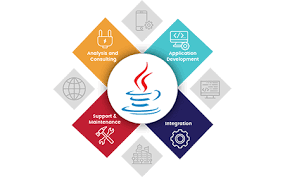Unlocking Efficiency: The Power of ERP Software Development
The World of ERP Software Development
Enterprise Resource Planning (ERP) software plays a crucial role in modern businesses by integrating various functions across an organization into a single system. ERP software development involves creating customized solutions that streamline processes, improve efficiency, and enhance decision-making.
Key Aspects of ERP Software Development
Developing ERP software requires a deep understanding of business processes, industry-specific requirements, and advanced technology. Here are some key aspects of ERP software development:
- Analyzing Requirements: The first step in ERP software development is to analyze the specific needs and requirements of the organization. This involves understanding existing workflows, data structures, and desired outcomes.
- Designing the System: Once the requirements are clear, developers design the architecture of the ERP system. This includes defining modules, data models, user interfaces, and integration points.
- Development and Customization: Developers then proceed to build the ERP software according to the design specifications. Customization is often required to tailor the system to meet unique business needs.
- Testing and Quality Assurance: Thorough testing is essential to ensure that the ERP software functions as intended. Quality assurance measures help identify and rectify any issues before deployment.
- Implementation and Training: Deploying an ERP system involves careful planning and execution to minimize disruptions to business operations. Training sessions are conducted to familiarize users with the new system.
- Maintenance and Support: Continuous maintenance and support are essential for keeping an ERP system running smoothly. Updates, patches, and troubleshooting services help address any issues that may arise.
The Benefits of Customized ERP Solutions
Customized ERP solutions offer several advantages over off-the-shelf software products. Some benefits include:
- Improved Efficiency: Tailored ERP systems can automate repetitive tasks, streamline workflows, and eliminate manual processes, leading to increased efficiency.
- Better Decision-Making: Access to real-time data insights allows organizations to make informed decisions quickly based on accurate information.
- Scalability: Customized ERP solutions can grow with your business, adapting to changing needs and expanding functionalities as required.
- Enhanced Security: By incorporating robust security features tailored to your organization’s needs, custom ERP systems provide better protection against cyber threats.
In conclusion, ERP software development is a complex process that requires expertise in both technology and business operations. By investing in customized ERP solutions tailored to your organization’s needs, you can unlock new levels of efficiency, productivity, and growth.
Top 6 Benefits of ERP Software Development for Business Efficiency and Growth
- Streamlines business processes for increased efficiency
- Provides real-time data insights for better decision-making
- Customizable to meet specific organizational needs
- Enhances collaboration and communication across departments
- Improves data accuracy and reduces manual errors
- Increases scalability to support business growth
7 Challenges of ERP Software Development: Costs, Complexity, and More
- High initial investment cost
- Complexity of implementation and customization
- Disruption to business operations during deployment
- Potential resistance from employees to adopt new system
- Dependency on vendor for updates and maintenance
- Risk of data security breaches if not properly configured
- Difficulty in integrating with existing legacy systems
Streamlines business processes for increased efficiency
ERP software development offers the significant benefit of streamlining business processes to enhance efficiency. By integrating various functions and departments within an organization into a centralized system, ERP software eliminates redundancies, automates repetitive tasks, and provides real-time data insights. This streamlined approach not only saves time but also improves accuracy and productivity across the board. Ultimately, by optimizing workflows and facilitating smoother operations, ERP software contributes to increased efficiency and effectiveness in achieving business objectives.
Provides real-time data insights for better decision-making
ERP software development offers a significant advantage by providing real-time data insights for better decision-making. By integrating various functions and data sources into a centralized system, organizations can access up-to-date information instantly. This enables decision-makers to analyze trends, identify opportunities, and address challenges promptly. With accurate and timely data at their fingertips, businesses can make informed decisions that drive efficiency, optimize processes, and ultimately enhance overall performance.
Customizable to meet specific organizational needs
One significant advantage of ERP software development is its ability to be fully customizable to meet specific organizational needs. By tailoring the ERP system to align with the unique requirements and workflows of a business, companies can optimize processes, enhance efficiency, and improve overall productivity. Customization allows for the integration of industry-specific features, data structures, and reporting functionalities, ensuring that the ERP solution is tailored to address the specific challenges and goals of the organization. This flexibility empowers businesses to adapt and evolve their ERP systems as their needs change over time, providing a scalable and sustainable solution for long-term success.
Enhances collaboration and communication across departments
ERP software development offers a significant benefit by enhancing collaboration and communication across departments within an organization. By integrating various functions into a centralized system, ERP software enables seamless sharing of information and real-time updates across different departments. This improved collaboration fosters better decision-making, enhances productivity, and ensures that all team members are working towards common goals efficiently. Overall, the ability of ERP systems to facilitate communication and collaboration among departments is vital for promoting synergy and achieving organizational success.
Improves data accuracy and reduces manual errors
One significant advantage of ERP software development is its ability to enhance data accuracy and minimize manual errors within an organization. By automating processes and centralizing data management, ERP systems ensure that information is consistently updated and maintained accurately across various departments. This proactive approach not only reduces the risk of human errors but also improves the overall quality and reliability of data, enabling businesses to make informed decisions based on trustworthy information.
Increases scalability to support business growth
One significant advantage of ERP software development is its ability to increase scalability to support business growth. Customized ERP solutions can easily adapt to the changing needs and expanding operations of a growing organization. By providing flexible and scalable features, ERP systems allow businesses to efficiently manage increased data volumes, users, and processes without compromising performance. This scalability ensures that the ERP system remains a valuable asset that can evolve alongside the business, supporting its growth and success in the long run.
High initial investment cost
One significant drawback of ERP software development is the high initial investment cost associated with implementing a customized solution. Developing and deploying an ERP system tailored to specific business requirements can require a substantial financial commitment upfront. This cost includes expenses related to software development, customization, training, infrastructure upgrades, and ongoing maintenance. For many organizations, especially small and medium-sized businesses, the initial investment required for ERP software development may pose a financial challenge and impact budget allocations for other critical areas of the business. The high initial cost can be a barrier to entry for some companies looking to leverage the benefits of ERP systems but facing constraints in terms of available capital.
Complexity of implementation and customization
One significant drawback of ERP software development is the complexity associated with implementation and customization. Integrating an ERP system into an organization’s existing infrastructure can be a challenging and time-consuming process, requiring careful planning, coordination, and resources. Customizing the software to align with specific business processes and requirements adds another layer of complexity, as it often involves extensive modifications to the core system. This complexity can lead to delays, cost overruns, and potential disruptions to daily operations if not managed effectively.
Disruption to business operations during deployment
During the deployment phase of ERP software development, one significant con is the potential disruption to business operations. Implementing a new ERP system can lead to temporary slowdowns or interruptions in daily workflows as employees adapt to the changes. Training sessions and system adjustments may take time, causing delays in productivity and potentially affecting customer service levels. Managing this disruption effectively is crucial to minimizing its impact on overall business performance and ensuring a smooth transition to the new ERP solution.
Potential resistance from employees to adopt new system
One significant con of ERP software development is the potential resistance from employees to adopt a new system. Implementing an ERP system often requires changes in established workflows and processes, which can lead to uncertainty and resistance among employees who are accustomed to existing methods. Resistance to change can hinder the successful implementation of the ERP system, resulting in decreased productivity, reluctance to use the new software, and potential delays in realizing the full benefits of the system. Effective communication, training programs, and change management strategies are essential to address this con and ensure a smoother transition for employees during the adoption of a new ERP system.
Dependency on vendor for updates and maintenance
One significant drawback of ERP software development is the dependency on the vendor for updates and maintenance. Organizations that opt for custom ERP solutions may find themselves reliant on the original vendor for ongoing support, updates, and maintenance. This can result in limited flexibility and control over the system, as any necessary changes or fixes must be coordinated through the vendor. Additionally, delays in receiving updates or resolving issues from the vendor can impact business operations and hinder timely decision-making processes. The reliance on a single vendor for crucial software upkeep can introduce risks related to service disruptions, compatibility issues, and potential cost implications.
Risk of data security breaches if not properly configured
One significant drawback of ERP software development is the risk of data security breaches if the system is not properly configured. Inadequate security measures, such as weak access controls or insufficient encryption protocols, can leave sensitive business data vulnerable to unauthorized access. Without robust security configurations in place, ERP systems may become targets for cyberattacks, potentially leading to data leaks, financial losses, and damage to the organization’s reputation. It is crucial for businesses to prioritize data security during ERP software development to mitigate these risks and safeguard their valuable information assets.
Difficulty in integrating with existing legacy systems
One significant challenge in ERP software development is the difficulty in integrating with existing legacy systems. Legacy systems often use outdated technologies and data formats that may not easily align with modern ERP solutions. This can result in complex integration processes, data migration issues, and potential disruptions to existing workflows. Overcoming this con requires careful planning, thorough analysis of legacy systems, and the implementation of robust integration strategies to ensure seamless communication between the new ERP system and legacy infrastructure.







